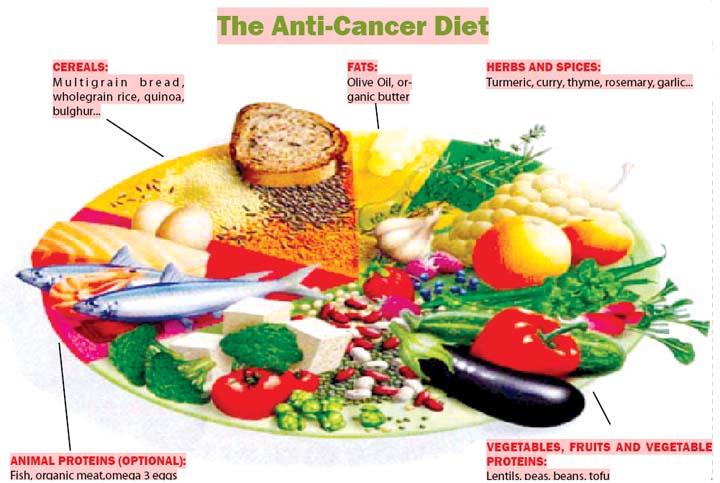Similar to humans, improved quality of life and good nutrition are important components of treatment of cancer in your dog. High Omega-3 fatty acids and low carbs diet is what pet owners generally prefer for dogs with cancer. Since cancer cells grow on carbohydrates and sugars, we don’t include them in diet for dogs suffering from cancer. Proper nutrition is very important as lack of appropriate nutrition for may lead to increased risk of complications in the diseases state. Following is our suggestion for a healthy diet of dogs with cancer:
- The food should have high calories: Feed your dog with the food with rich quantity of calories. Even if your dog consumes a small amount, he will get enough calories from food with high calories and energy.
- Food should be rich in fat: Cancer cells thrive on sugars and carbohydrates while fats are good source for normal cells of dog. Diet with 25-40% fat on a dry matter basis is recommended for dogs with cancer.
- Moderately high protein level: Food with protein level of 30-45% on a dry matter basis is recommended for dogs with cancer (with kidney and liver functioning normally). Decrease in muscle mass (which is made up of protein) leads to weight loss in dogs. So it is advised to feed your dog with diet moderately high in protein.
- Low-carb diet is recommended: The diet you are feeding to your dog suffering from cancer should not a have carbohydrate content more than 25% of the food on a dry matter basis. Carbohydrates promote the growth of tumor cells.
Certain foods are available for dogs with cancer which are fortified with nutrients which are beneficial for dogs with cancer. These nutrients include:
- Omega-3 fatty acids such as docosahexaenoic acid (DHA) and eicosapentaenoic acid (EPA). Fish oil is a good source of these fatty acids.
- Certain dog foods which are ideal for dogs with cancer have arginine in them. Arginine is an important amino acid that is good for immune system, and also suppresses the growth of tumor cells. 2% of higher levels of arginine are recommended for dogs with cancer.
When dogs develop cancer, there may be some behavioral changes and abnormal eating habits. Chances are high that your dog refuses to eat. Selecting appropriate food for dog is only a successful beginning; the real challenge is to feed him. Being a good pet owner, you should think of ways in which you can feed him more. Try to feed him food with high moisture and good aroma. Avoid giving medicines with food as dog will lose liking for the food. Fresh food is recommended and if dog is still refusing to eat, you may go for appetite stimulants.
Recommended food for dogs with cancer:
- Protein sources such as lean cuts of beef, venison, duck, chicken, fish, turkey, pork, goat and lamb should be fed to the dog.
- Krill oil and fish oil are good source of fatty acids.
- Vegetables such as shiitake mushrooms, broccoli, cauliflower, brussel sprouts, cabbage, (cooked) mung beans, peas, red or yellow bell peppers, carrots, sweet potatoes and blueberries are suggested for dogs suffering from cancer.
- Cottage cheese and calcium citrate tablets are good source of calcium, and are highly recommended. However, you should consult your veterinarian for optimum dose of calcium citrate tablets.
- Butter and full-fat milk or cream contains conjugated linoleic acid (CLA) which is known to suppress the growth of tumor cells.
What not to feed:
The following food should be avoided if your dog has cancer:
- Cocoa Mulch
- Chocolate
- Apple seeds
- Avacado (including guacamole)
- Walnuts and macademia nuts
- Grapes and raisins
- Onions
- Large quantities of Garlic
- Sugar free foods containing Xylitol
- Antifreeze
The Last Word:
You can’t prevent the cancer entirely but it can be managed with the proper food and exercise. Obese dog are more likely to be suffering from cancer. Above mentioned foods and appropriate feeding methods can help counterbalance the cancer cachexia.

